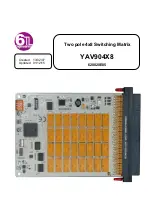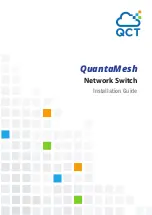
B. Flush Mounted Installation
NOTE: When installing over an existing wall box make
sure any bare electrical wires are capped. Where local
building codes require the use of UL certified wallplates,
please replace the provided wallplate by a certified
wallplate made of plastic. Metal wallplates are not recom
-
mended, as they would reduce radio coverage!
i.
Remove the assembly screws which hold the wall
plate, rocker pad, and mounting plate together.
ii.
Use a tool to carefully pry the
rocker pad free from the
back plate. The back plate is
not used for this option.
iii.
Mount the rocker pad over
the existing wall box using
the two screw holes,
NOTE: For proper assembly, make sure to align the
“top” labels on the rocker pad and wall plate.
iv.
Attach the wall plate on top of the rocker pad using
the two wall box screw holes.
4. Insert the trim plate tabs in the bottom slots, and then lightly
flex the plate to insert top tabs.
TIP: To remove the trim plate, use a flat-head screwdriver to
depress the trim plate tabs using the 2 slots on the bottom
of the wall plate. Alternatively, use a fingernail to press down
along the top groove and flex the tabs out of the slots.
5. Click the rocker pad on and off to test the mechanism.
NOTE: To activate dimming, press and hold; top button to
increase, bottom button to decrease.
Commissioning
Commissioning is the process to configure the rocker to the
right radio channel and learn the rocker pad into a receiving
device. ESRPBZ and EDRPZ support all 16 radio channels (Chan
-
nel 11 ... 26) specified by IEEE 802.15.4 which are used by ZigBee
systems.
A. Setting the rocker pad into commissioning mode
The rocker pad can be set into commissioning mode
by means of a specific button sequence. This avoids the
need for removal from the wall or disassembly.
To do so, select one button of the rocker pad (e.g. the
top one in ESRP or the top left one in EDRP). Then press
this button long (>10 seconds), press it short (<3 sec
-
onds) and press it again long (>10 seconds).
The rocker pad is now in commissioning mode and will
transmit a commissioning telegram on the current radio
channel. By default this is ZigBee Channel 11.
OP
OP
B. Modifying the radio channel
If your system does not operate on ZigBee Channel 11
then you can adjust the radio channel by clicking the but
-
ton used for entry into commissioning mode. Doing so
will cause the rocker pad to cycle through the supported
radio channels starting with ZigBee Channel 11 and end
-
ing with ZigBee Channel 26.
The receiver system should provide user feedback so
that the user can verify if the correct channel has been
reached and linking was successful.
C.
Storing the configuration
If the rocker pad has been commissioned into the target
system then the configuration has to be stored. To do
so, press the opposite button on the rocker pad (bottom
button for ESRP, bottom left button for EDRP). The rocker
pad is now ready for use.
Troubleshooting
Problem
Solution Checklist
The rocker pad
does not generate a
message
▪
Verify the rocker pad is installed in the proper
orientation
The linked device
does not respond
to wireless mes
-
sages
▪
Check for environment or range issues
▪
Verify the device is linked
▪
Verify that the rocker pad operates on the
same radio channel as the linked device
▪
Check the transceiver connection and the wir
-
ing for errors
▪
Check if appropriate devices are linked accord
-
ing to good system planning
Contains
FCC: SZV-PTM215Z
IC: 5713A-PTM215Z
This device complies with part 15 of the FCC rules and Industry Canada ICES-003. Operation
is subject to the following two conditions: (1) This device may not cause harmful interference,
and (2) this device must accept any interference received, including interference that may
cause undesired operation.
IMPORTANT! Any changes or modifications not expressly approved by the party responsible
for compliance could void the user’s authority to operate this equipment.
Le présent appareil est conforme aux CNR d’Industrie Canada applicables aux appareils radio
exempts de licence. L’exploitation est autorisée aux deux conditions suivantes: (1) l’appareil ne
doit pas produire de brouillage, et (2) l’utilisateur de l’appareil doit accepter tout brouillage
radioélectrique subi, meme si le brouillage est susceptible d’en compromettre le fonc
-
tionnement.
IMPORTANT! Tous les changements ou modifications pas expressément approuvés par la
partie responsable de la conformité ont pu vider l’autorité de l’utilisateur pour actioner cet
équipment.
Rocker Pad (Single, Double) • Installation Guide
Page 2
© 2016 EnOcean GmbH
V1.0




















